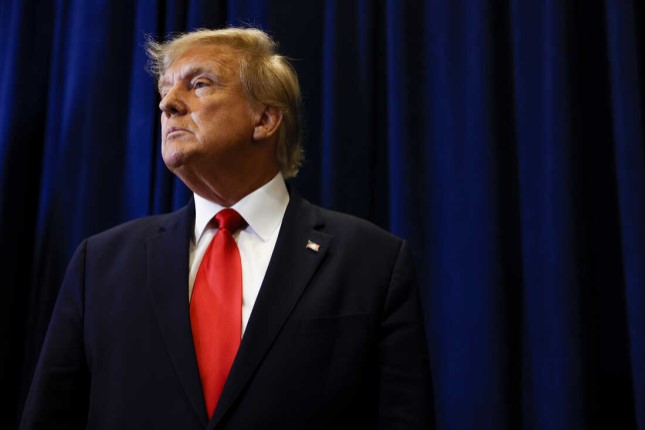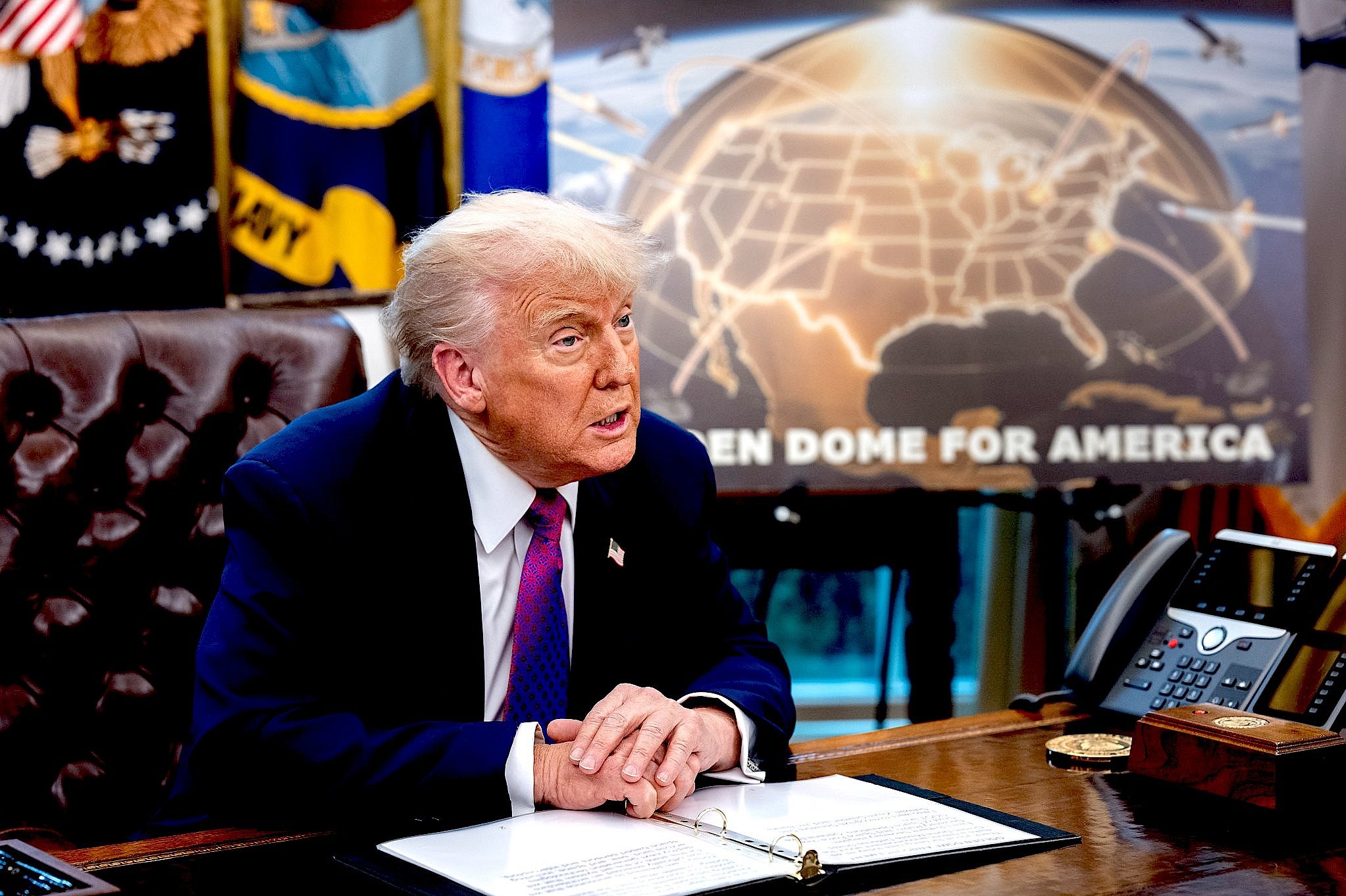On Tuesday, for the first time in US history, a former president will be arraigned in court for violating federal criminal law. The decision to indict Donald Trump reflects profound divisions within the ruling class and accelerates a crisis that will rattle the foundations of the American political establishment in the coming weeks and months.
There is no lack of political and constitutional reasons for prosecuting Trump. In his four years as president, he ran roughshod over the population’s most basic democratic rights. He led an attempt to overthrow the Constitution and establish a dictatorship on January 6, 2021. He launched a Hitlerian initiative to separate immigrant children from their parents. He encouraged fascist supporters to “stand by” in the run-up to the 2020 presidential election in order to intimidate voters. He pardoned war criminals, declared that “torture works,” and threatened to blow up Iranian cultural sites in violation of international law and the Nuremberg Principles.
However, the Democratic Party-led prosecution of Donald Trump addresses none of these crimes. While Trump and his main co-conspirators have never been punished for their attacks on the rights of the population, the Justice Department’s indictment of Trump focuses solely on his transgressions against the national security apparatus.
The indictment centers on Trump’s retention of state secrets relating to US imperialism’s plans for war. Among the documents that the indictment states Trump kept after leaving office are those detailing the nuclear capabilities of the US and its enemies as well as attack plans against various countries and contingencies for war. The state guards such documents as “top secret” because the population cannot be allowed to know about them.
To safeguard its secret war plans, the Biden administration’s indictment relies for statutory authority almost entirely on the Espionage Act of 1917.
Nothing progressive can come from prosecuting Trump based on the Espionage Act. For over a century, the Espionage Act has served as the sharpest legal implement in the toolshed of state reaction, used for the purpose of suppressing opposition to imperialist war.
The Espionage Act, which was based explicitly on the Alien and Sedition Act of 1798, arose in the bloody adolescence of American imperialism, when it confronted the outbreak of the First World War and the Russian Revolution.
President Woodrow Wilson first demanded the passage of such a law in his December 7, 1915 State of the Union address, when the United States remained formally neutral in the imperialist maelstrom into which it was being drawn.
Denouncing those “who have poured the poison of disloyalty into the very arteries of our national life,” Wilson demanded Congress “enact such laws at the earliest possible moment” to “do nothing less than save the honor and self-respect of the nation.” Referring to the growth of strikes and the increasing popularity of socialism, especially among immigrant workers, he said, “Such creatures of passion, disloyalty and anarchy must be crushed out. … The hand of our power should close over them at once.”
Wilson’s speech set the tone for the debates surrounding the two most important and interrelated pieces of congressional actions of 1917: the declaration of war against Germany and the Espionage Act.
In his formal address to Congress asking for a declaration of war, Wilson blamed German intrigue for internal dissent: “From the very outset of the present war it has filled our unsuspecting communities and even our offices of government with spies and set criminal intrigues everywhere afoot against our national unity of counsel, our peace within and without, our industries and our commerce.” He again demanded swift passage of a bill to safeguard the state’s war plans and crush dissent. Such a bill was introduced in early April, passed the House by a 261-109 vote on May 4, passed the Senate by an 80-8 vote on May 14, and was signed into law by Wilson on June 15.
The debates and passage of the Espionage Act coincided with the rapidly developing revolutionary changes taking place in Russia.
In February, the revolutionary upheaval of the Russian workers and peasants forced the collapse of the Romanov dynasty, and a bourgeois provisional government was established in its stead. In April, simultaneous to the introduction of the Espionage Act in the House, Lenin returned to Russia. In mid-April, anti-war sentiment among Russian toilers exploded when a secret letter pledging continued support for the war, written to the allies by the provisional government’s foreign minister, Pavel Miliukov, was leaked to the public.
Washington followed these developments with the most intense concern and attention and enacted the Espionage Act to protect the state from the threat of revolution and to eliminate obstacles to waging imperialist war.
Since becoming law, the Espionage Act has served as the statutory foundation for the massive national security apparatus that both parties have constructed over the last century. In his book Secrecy, former Senator Daniel Patrick Moynihan wrote that with the passage of the act, “The modern age began.” He continued: Three new institutions had entered American life: Conspiracy, Loyalty, Secrecy. Each had antecedents, but now there was a difference. Each had become institutional; bureaucracies were established to attend to each. In time there would be a Federal Bureau of Investigation to keep track of conspiracy at home, a Central Intelligence Agency to keep tabs abroad, an espionage statute and loyalty boards to root out disloyalty or subversion. And all of this would be maintained, and the national security would be secured, through elaborate regimes of secrecy.
Over the course of the 20th century, the Espionage Act has been utilized by Republican and Democratic administrations to carry out some of its most atrocious crimes.
Among the Wilson administration’s first targets was Eugene V. Debs, the revolutionary leader of the Socialist Party. Debs was arrested and convicted for violating the Espionage Act after delivering an anti-imperialist speech in Canton, Ohio, in which he attacked the war and the capitalist class. “Every solitary one of these aristocratic conspirators and would-be murderers claims to be an arch-patriot,” Debs declared. “Every one of them insists that the war is being waged to make the world safe for democracy. What humbug! What rot! What false pretense!” Debs ran for president in 1920 from prison and won almost a million votes.
Others were jailed for speaking out against World War One, including Emma Goldman, Kate Richards O’Hare, Charles Schenk and Jacob Abrams. Thousands of immigrants were arrested and deported for their political views in a series of raids which Wilson’s attorney general, A. Mitchell Palmer, justified in part under the Espionage Act.
During the Second World War, after Franklin Delano Roosevelt’s Attorney General Francis Biddle had convicted 18 members of the Socialist Workers Party under the Smith Act for opposing the war, Biddle used the Espionage Act to bar the SWP from distributing its publication, The Militant, through the mail.
In the years following the Second World War, the Espionage Act served as the pseudo-legal backbone for the anti-communist witch-hunts of the 1950s, including most notoriously the murder of Ethel and Julius Rosenberg on June 19, 1953 on trumped-up charges that they conspired to conduct atomic espionage for the Soviet Union. The government decided to charge the Rosenbergs under the Espionage Act rather than the Atomic Secrets Act because the former carried a death penalty while the latter did not.
In 1971, the Nixon administration charged Daniel Ellsberg with violating the Espionage Act after the former RAND employee provided the New York Times and Washington Post with the Pentagon Papers, which detailed the war plans and crimes of US imperialism in Southeast Asia.
Though presidential administrations of the 20th century were hesitant to use the Espionage Act too often, any restraint was abandoned by Barack Obama, whose Justice Department prosecuted more people under the Espionage Act than all previous presidents combined.
The Obama administration prosecutions focused solely on stopping leaks of military documents to the press. Those prosecuted by Obama included Jeffrey Alexander Sterling, a former CIA officer who revealed to New York Times journalist James Risen details of covert CIA spying on Iran; Thomas Drake, a former National Security Agency official who attempted to blow the whistle on NSA spying to the Baltimore Sun; Chelsea Manning, who provided information about US war crimes in Iraq and Afghanistan to WikiLeaks; John Kiriakou, who leaked information about the illegal torture of detainees; Edward Snowden, who provided journalists with a mass of documents showing the NSA was engaged in massive illegal surveillance against the world’s population; and Daniel Hale, who leaked internal military documents about the Pentagon’s drone assassination program.
The decision to prosecute Trump under the Espionage Act comes as the Biden administration continues to fight to extradite WikiLeaks publisher Julian Assange from Belmarsh prison in London where he has been locked in a cell for four years. Prior to his confinement in Belmarsh, Assange was forced to take refuge in the Ecuadorian embassy in London, where he was effectively detained for seven years. Assange’s “crime” is that he published evidence of massive war crimes conducted by American imperialism and its allies. He faces a potential 170-year prison sentence under Espionage Act charges.
Trump is no victim of the state. He is the former commander in chief of the US military and a fascistic conspirator. But the prosecution of Donald Trump under the Espionage Act can produce no progressive outcome. This is precisely why the Democratic Party has selected the Espionage Act as its legal vehicle for attempting to remove Trump from the political arena, and it is in line with its strategy for opposing Trump on the basis of right-wing foreign policy considerations ever since he took office in 2017.
Trump is the leading Republican candidate for president, and the prospect of his return to office is a very real and dangerous one. But the ruling class knows that the war which the US and NATO are escalating against Russia will unleash profound opposition, and they are preparing their mechanisms to suppress and illegalize anti-war sentiment and crush strikes that threaten production. The Espionage Act will no doubt be used for this purpose.
Source: World Socialist Web Site.































